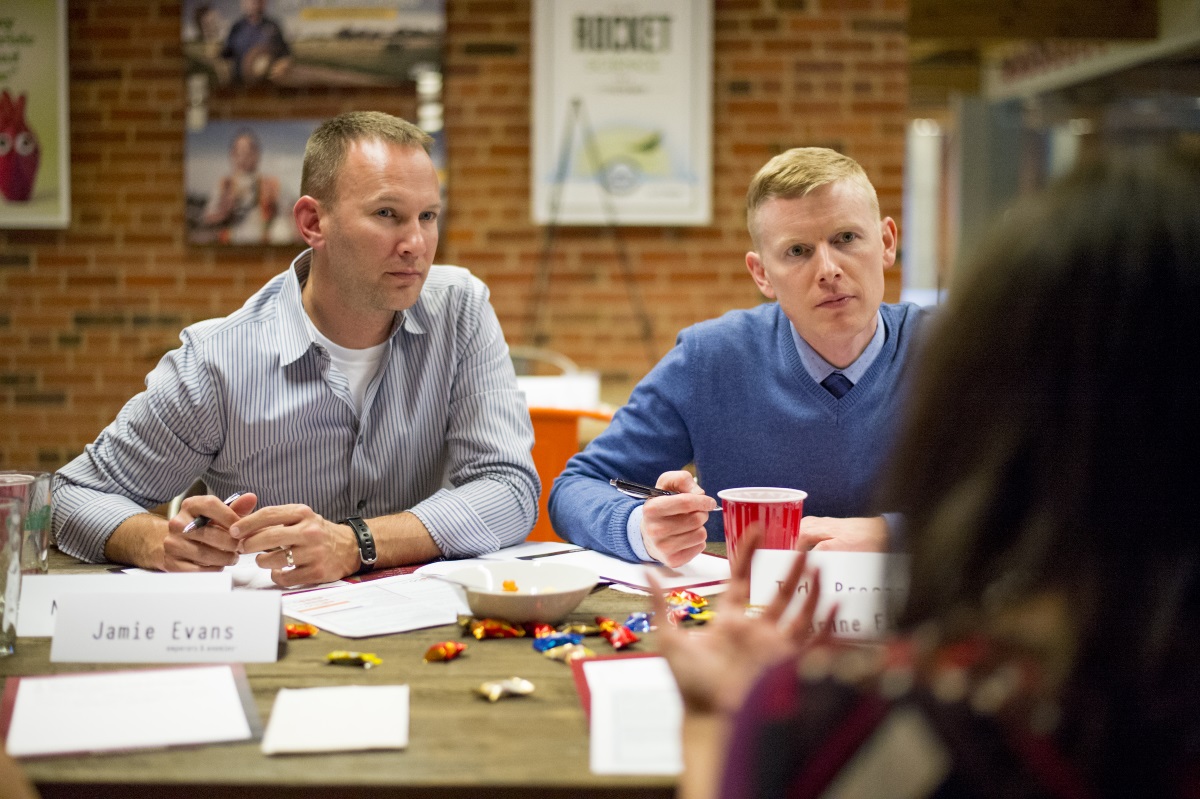
This fall the Executive MBA Program in Denver will launch a new “blending-learning” format designed to better fit into busy professionals’ schedules with online lectures while still providing the desired classroom experience and networking opportunities.
The previous format, in place since 1988, consisted entirely of classroom time – two nights during the work week – making pursuing the degree challenging if not impossible for many professionals interested in it, says Jill Terry, program director.
With the new format, students will still spend a majority of program time in class or networking: they will attend full-day classes two Saturdays a month as well as participate in four residencies – three on the CSU campus during the school year and one in a foreign country over the summer. This year that residency is in South America.
The remainder of their time is spent outside of the classroom watching the lectures, reading assigned material, answering questions, and interacting with their peers online, Terry says.
“We can now reach people who have busy travel schedules,” she says, noting she expects the new format to attract 20 to 25 strong candidates. “We’re actually expanding our geographic boundaries as far as recruiting for this class. It could appeal to people statewide or even within a short flight in.”
The opportunity to draw on their classmates’ average of 14 years of experience each is what makes the Executive MBA degree different than an MBA. With the new format, less time spent on lectures in the classroom will mean more time for collaboration with their peers, Terry notes.
Part of the first residency involves the instructor dividing the students into teams, which then write team charters – an agreement on how they will work together to accomplish goals quickly and efficiently, solve problems, address issues that arise throughout the year, set expectations, and more, she says.
The instructor will make the teams diverse in their members to make the strongest, best-functioning teams but, Terry says, “It’s not always perfect.”
However, the teams and their charters reflect how businesses in the real world function. “When you have to pull together a working team, you set up an agreement on how you’re going to accomplish something,” she says. “Our goal is pretty set: to earn an MBA. You can apply the same concepts to working; anytime you have a working team, it’s good to have a framework.”
And the residencies on the Fort Collins campus will allow students to broaden their networks in and outside the classroom, grow relationships, introduce them to new classes of Executive MBA students, and strengthen their connection to CSU, Terry says.
Another benefit to the new format is that students will find the lectures, delivered as “video bursts” online, more interesting and easier to absorb, Terry says. “It’s breaking (the information) down into more engaging, more learnable segments.
“Passive learning with a faculty at the front of the room delivering material in a one-way monologue is dead,” she continues, pointing to recent research that shows “the use of online modules increases the variety and depth of learning for students, and enables instructors to reach those who have differing learning styles.”
And participating in discussions on social media “allow for shared, real-time experiences online that both support and enhance the classroom-based interactions,” Terry adds.
For more information about the Executive MBA Denver program, visit www.DenverMBA.com or call Jill Terry, (303) 534-3191.